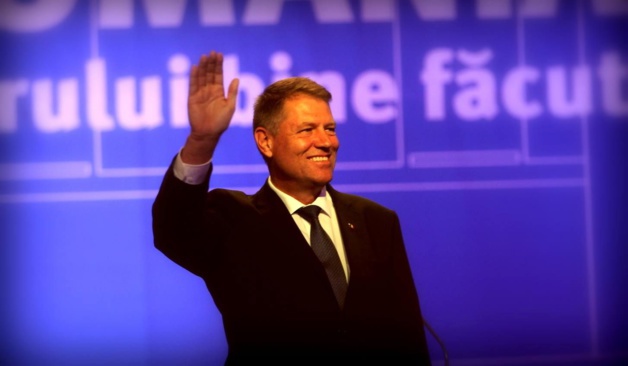
Credits DR
Several weeks previously, no-one would have counted on his success. And yet, this November, against all odds, Klaus Iohannis was elected as the new President of Romania.
With more than 54% of the vote, the Christian Liberal candidate stunned the nation with his surprise win over rival, Social Democrat and current Prime Minister Victor Ponta, who came ahead in the first round of elections and who was tipped to be the final victor.
It must be noted that this landslide victory marks a decisive break in the political history of the nation, Klaus Iohannis himself representing two minority groups: he is the first ethnic German President, a minority ethnicity in Romania, and he is also a Protestant, in a country where 90% of the population are Orthodox.
A Reserved Man
The 55-year old President elect, who is often described as reserved, was not well known before the elections. Formerly a physics teacher, he entered politics through the back door having been elected, also against the odds, as mayor of Sibiu, a medieval German city located in the centre of Romania. A provincial town close to ruin, Iohannis restored and transformed it into one of the biggest tourist destinations of the country in only a few years. His success as a fine leader was recognised, and the people of Sibiu re-elected him as mayor for a further three terms.
And it was only when the city became European Capital of Culture in 2007 that Iohannis made his real appearance on the national stage. Since June, he has also become the President of the National Liberal Party.
His personality is not typical of politicians: he is sometimes seen as taciturn, he seems uneasy in front of the cameras, and he is often criticised for lacking the charisma that Victor Ponta has. Nevertheless, many hold him in high regard: “tolerant”, “upright”, “honest”, “open”; these are all adjectives that have been used to describe Iohannis.
Mirroring these values attributed to him, the spearhead of Iohannis’ campaign was the fight against corruption, a practice that has been rotting the nation’s political system for years. This battle echoes those of Trajan Basescu, former President of the country, and of Angela Merkel. These two political heavyweights both expressed their steadfast support for Iohannis during the elections.
And despite the smear campaign that was set up against him in between the two electoral rounds, in which he was accused of having sold children for organ trafficking and of having used public money for personal use, Iohannis’ reputation was left untarnished.
At news of his victory, scenes of jubilation broke out across the country; “We are very happy with his success”, explains Maddy, a Romanian student. “For the first time in a long time we feel united by the same ideas, particularly among young people. As a general rule, people ridicule politics, but today everybody is proud of the election results. Iohannis represents something different, something which the country really needs”.
A new beginning for Romania?
Iohannis’ victory seems to mark a new beginning for the country. It is as if the Romanian people, having grown weary of the corrupt post-Communist regime, want to send out a clear message to the political world. As such, according to expert observers, this election could mark above all the defeat of Victor Ponta, against whom the Romanian people wanted to demonstrate their dismissal.
It must be noted here that, although Ponta has accepted defeat, he is still refusing to resign and intends to remain at the head of government. His resignation has been demanded by thousands of Romanians, who gathered in the streets on the night of the election.
But it must also be recalled that these elections are, more importantly, a victory for democracy: with a participation rate of 64.10% in the second round, the country has witnessed an unprecedented mobilisation of its electorate, particularly amongst Romanians in the diaspora. “My dear Romanians, you were heroes today. The vote unfolded phenomenally. The participation rate at the polls was enormous”, the new President triumphed, moments after his win.
Iohannis’ Presidential term will begin next year on 22nd December. For five years, apart from having to cohabit with his opponent, he will also have to address large problems in the country: poverty, the gap in development between urban and rural areas, emigration, and the state infrastructure. In short, it will be a term all about perspective. And the dawn of a new type of governance, the sign of hope for a new beginning. With 20 million citizens, Romania remains the poorest country in the European Union after Bulgaria.




























